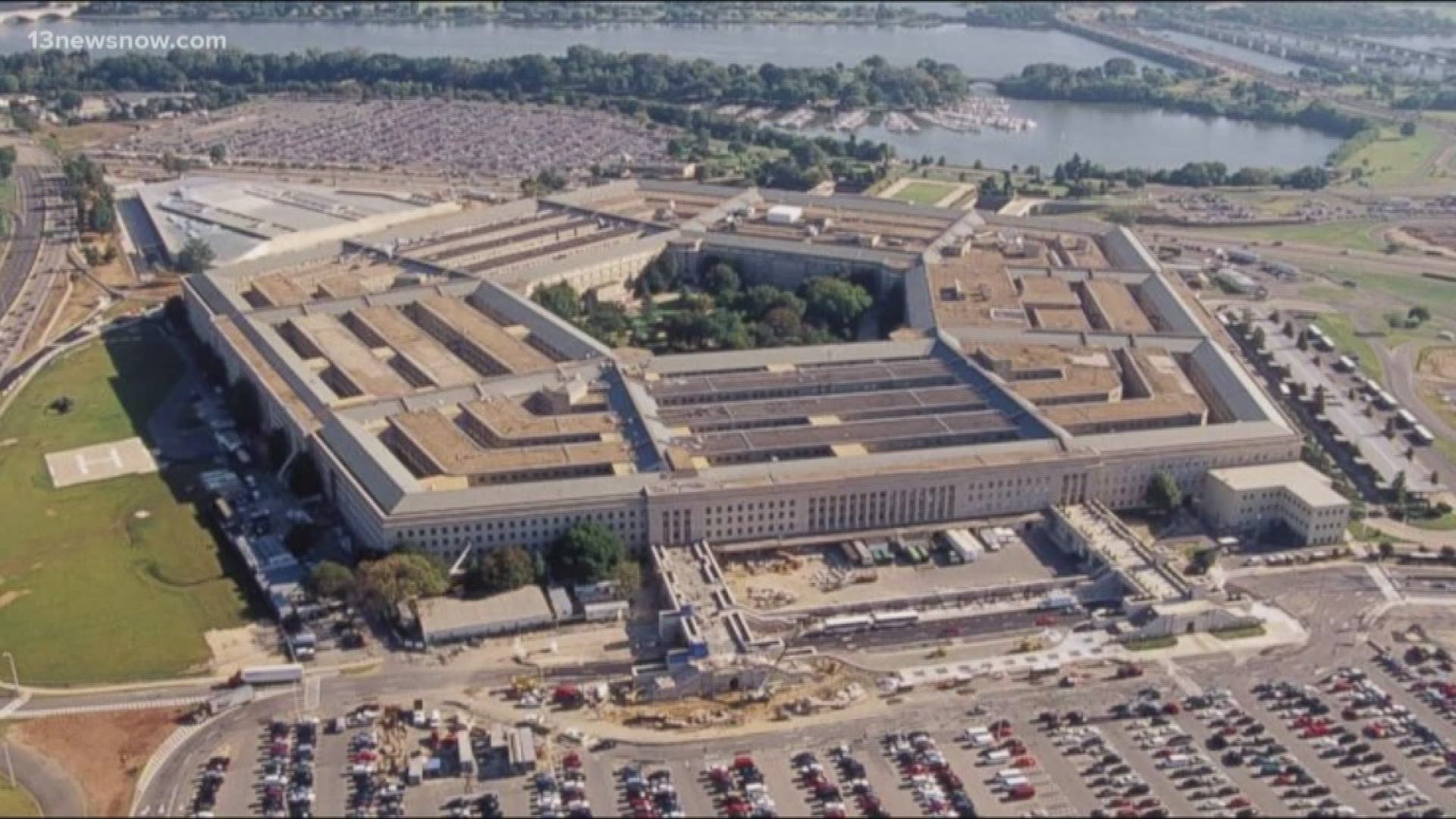WASHINGTON — The nation's 2.1 million active and reserve military members already had it tough enough with long absences from home, and getting repeatedly sent into harm's way.
Now with the coronavirus, the troops have many questions about what the pandemic means for them.
Top Pentagon leaders tried to answer a few of their questions Tuesday, like what should a subordinate do if it appears leaders aren't being proactive enough about health and safety?
Secretary of Defense Mark Esper said, speak up.
"Raise it privately with your chain of command and say, 'Hey, maybe we should do it differently next time,'" he said. "Help remind your leaders, help protect, help each other get through this by reminding each other about social distancing. Different ways of accomplishing the mission while meeting those same guidelines."
Another military member questioned the need for large number formations of personnel when everybody is being told to stay apart.
"On that subject, we have to revert back to the trust in the chain of command, the people closest to the troops that are in the field," said SEAC Ramon Colón-López, the Senior Enlisted Advisor to the Chairman of the Joint Chiefs of Staff.
"And we're trusting the local commanders an d their medical professionals to go ahead and provide the information to then take the prudent steps to make sure that they contain or prevent the spread of the disease," he said.
Finally, one member wanted to know, what the impact could be on global stability.
The chairman of the Joint Chiefs of Staff Gen. Mark Milley said, "It could lead in some sense to social breakdowns, it could lead to political chaos in certain countries. We have to be attuned to that."

